Firm Dynamics and Employment Outcomes
In a market economy, firm foundations and closures are important drivers of resource (re)allocation, structural change, and economic development which is particularly important with respect to the economic transformation of East Germany from a state-directed to a market economy. At the same time, job displacement coming along with structural change may have serious consequences for affected employees, such as unemployment, earnings losses, or lower job quality in a new job. This research group uses microeconometric methods to analyze foundation, evolution, and failure of firms, the amount and quality of jobs created by new firms and the consequences of firm closures for employees, in particular in terms of labor market outcomes such as employment and wages.
Research Cluster
Productivity and InstitutionsYour contact

Mitglied - Department Structural Change and Productivity
EXTERNAL FUNDING
01.2020 ‐ 06.2024
The Rise of Populist Parties in Europe: The Dark Side of Globalization and Technological Change?
VolkswagenStiftung
Globalisation may have increased prosperity in general, but has also led to unemployment, wage inequality, outward migration and, thus, ageing populations in many European regions. This project examines whether these economic burdens lead to votes for populist parties.
01.2019 ‐ 06.2022
MICROPROD („Raising EU Productivity: Lessons from Improved Micro Data“)
European Commission
The goal of MICROPROD is to contribute to a greater understanding of the challenges brought about in Europe by the fourth industrial revolution and the associated ‘productivity puzzle’ in a context of globalisation and digitisation, and to provide alternative policy options to better address these challenges.
This project has received funding from the European Union’s Horizon 2020 research and innovation programme under grant agreement No 764810.
07.2018 ‐ 12.2020
Firm Wage Differentials in Imperfect Labour Markets: The Role of Market Power and Industrial Relations in Rent Splitting between Workers and Firms
German Research Foundation (DFG)
The main purpose of this proposal is to grasp a firmer understanding of how employment rents are split between workers and employers in imperfect labour markets and how labour market institutions, such as unions and works councils, influence the distribution of rents. In that it not only promises new insights into the wage formation process and the likely consequences of important labour market trends like falling unionisation and worker codetermination, but also promises to inform important public policy debates, such as which rights should be granted to organised labour.
02.2019 ‐ 09.2019
Evaluation of the IAB Establishment Panel 2018 and Preparation of a Results Report for West and East Germany
Final report: Fehlende Fachkräfte in Deutschland – Unterschiede in den Betrieben und mögliche Erklärungsfaktoren: Ergebnisse aus dem IAB-Betriebspanel 2018. IAB-Forschungsbericht 10/2019. (in German, English abstract available)
04.2016 ‐ 03.2019
Wage and Employment Effects of Bankruptcies
German Research Foundation (DFG)
The project analyzes the process and the consequences of firm failure. For the first time, evidence on the consequences of small firms’ bankruptcy on employees’ earnings and wages is provided. The project e.g. shows that employees of small firms are more likely to see their employer failing but, at the same time, face smaller earnings and wage losses than employees displaced from larger firms. Check the below research articles for further insights.
01.2018 ‐ 12.2018
Evaluation of the IAB Establishment Panel 2017 and Preparation of a Results Report for West and East Germany
Final report: Lohnunterschiede zwischen Betrieben in Ost- und Westdeutschland: Ausmaß und mögliche Erklärungsfaktoren. Ergebnisse aus dem IAB-Betriebspanel 2017. IAB-Forschungsbericht 6/2018. (in German, English abstract available)
01.2017 ‐ 09.2017
Evaluation of the IAB Establishment Panel 2016 and Preparation of a Results Report for West and East Germany
Final report: Produktivitätsunterschiede zwischen West- und Ostdeutschland und mögliche Erklärungsfaktoren. Ergebnisse aus dem IAB-Betriebspanel 2016. IAB-Forschungsbericht 16/2017. (in German, English abstract available)
Refereed Publications
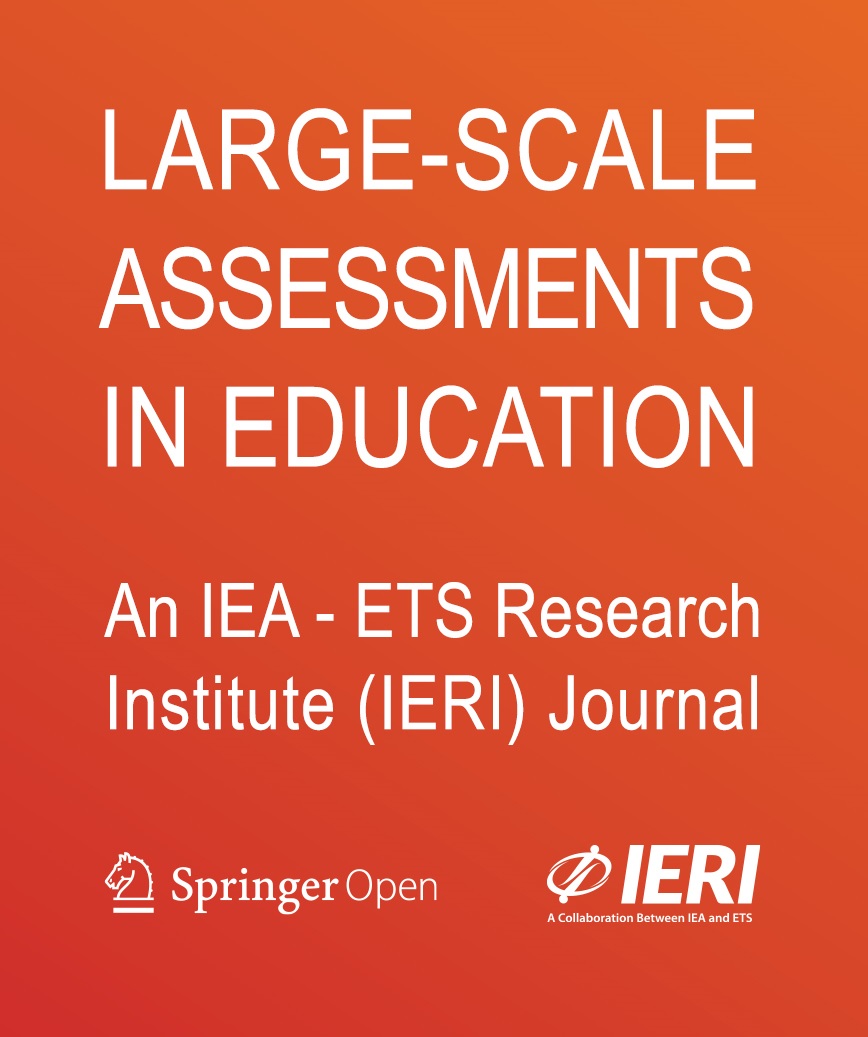
Skills, Earnings, and Employment: Exploring Causality in the Estimation of Returns to Skills
in: Large-scale Assessments in Education, No. 12, 2017
Abstract
Ample evidence indicates that a person’s human capital is important for success on the labor market in terms of both wages and employment prospects. However, unlike the efforts to identify the impact of school attainment on labor-market outcomes, the literature on returns to cognitive skills has not yet provided convincing evidence that the estimated returns can be causally interpreted. Using the PIAAC Survey of Adult Skills, this paper explores several approaches that aim to address potential threats to causal identification of returns to skills, in terms of both higher wages and better employment chances. We address measurement error by exploiting the fact that PIAAC measures skills in several domains. Furthermore, we estimate instrumental-variable models that use skill variation stemming from school attainment and parental education to circumvent reverse causation. Results show a strikingly similar pattern across the diverse set of countries in our sample. In fact, the instrumental-variable estimates are consistently larger than those found in standard least-squares estimations. The same is true in two “natural experiments,” one of which exploits variation in skills from changes in compulsory-schooling laws across U.S. states. The other one identifies technologically induced variation in broadband Internet availability that gives rise to variation in ICT skills across German municipalities. Together, the results suggest that least-squares estimates may provide a lower bound of the true returns to skills in the labor market.
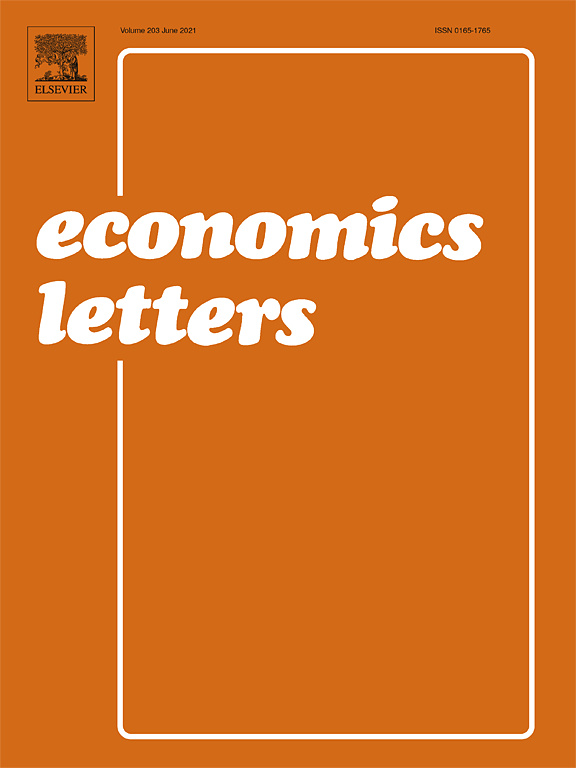
Coping with Change: International Differences in the Returns to Skills
in: Economics Letters, April 2017
Abstract
International data from the PIAAC survey allow estimation of comparable labor-market returns to skills for 32 countries. Returns to skills are larger in faster growing economies, consistent with the hypothesis that skills are particularly important for adaptation to economic change.
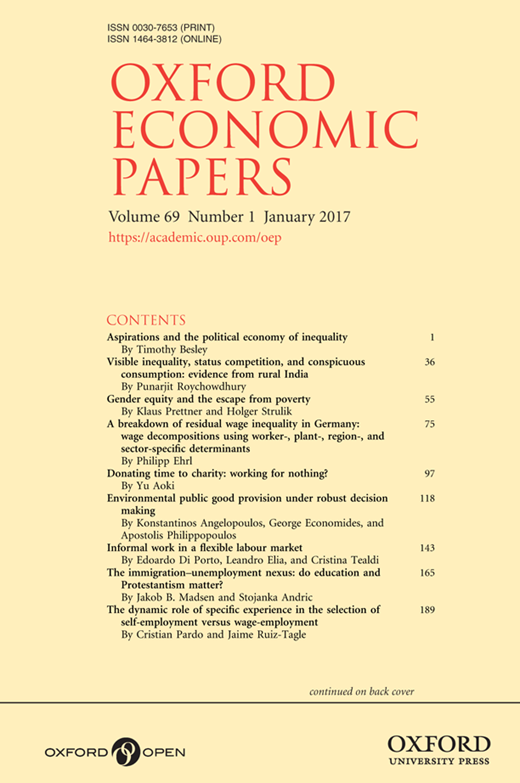
Paternal Unemployment During Childhood: Causal Effects on Youth Worklessness and Educational Attainment
in: Oxford Economic Papers, No. 1, 2017
Abstract
Using long-running data from the German Socio-Economic Panel (1984–2012), we investigate the impact of paternal unemployment on child labour market and education outcomes. We first describe correlation patterns and then use sibling fixed effects and the Gottschalk (1996) method to identify the causal effects of paternal unemployment. We find different patterns for sons and daughters. Paternal unemployment does not seem to causally affect the outcomes of sons. In contrast, it increases both daughters’ worklessness and educational attainment. We test the robustness of the results and explore potential explanations.
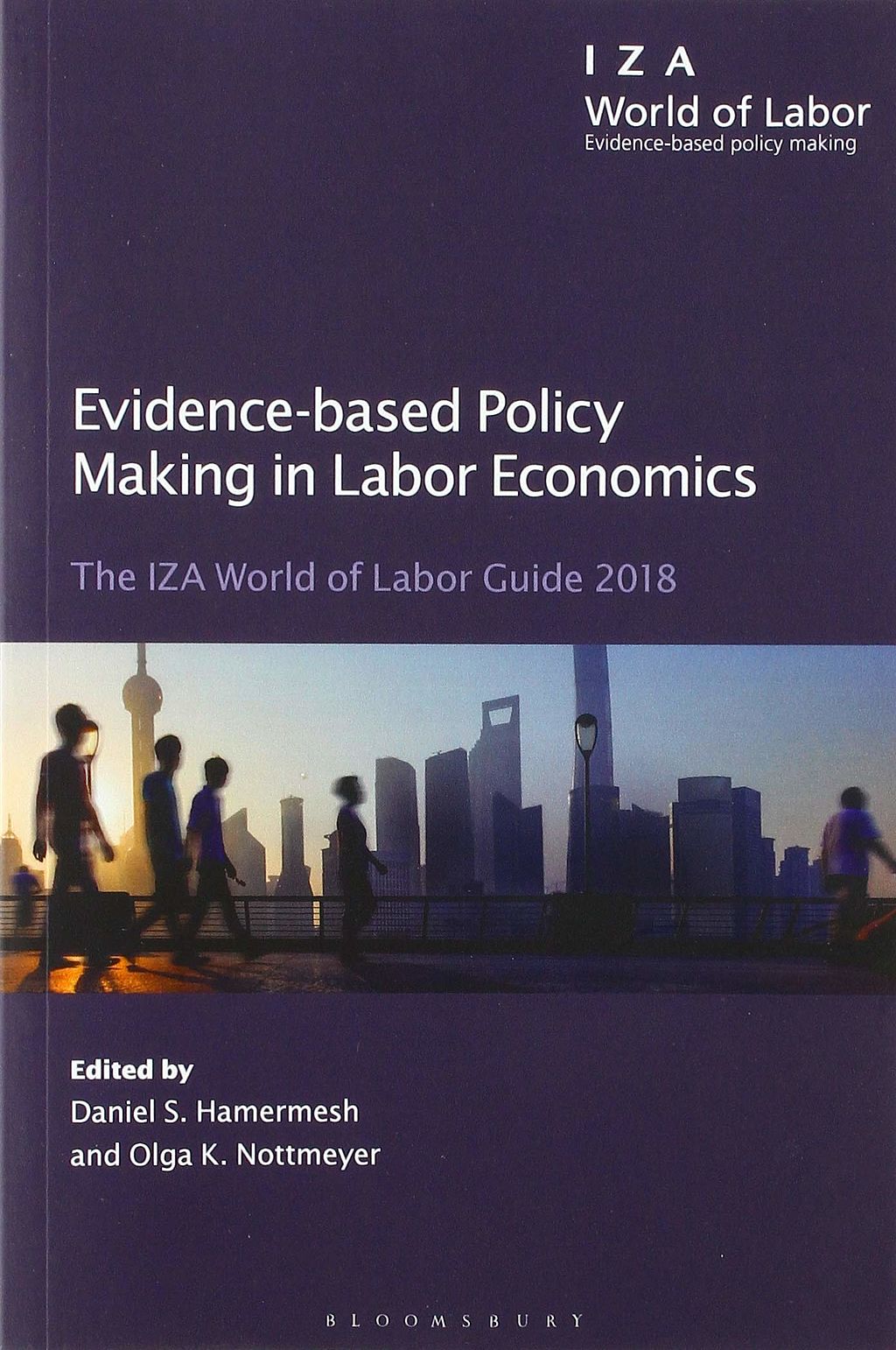
Gender Wage Discrimination: Does the Extent of Competition in Labor Markets Explain why Female Workers are Paid Less than Men?
in: IZA World of Labor, No. 310, 2016
Abstract
There are pronounced and persistent wage differences between men and women in all parts of the world. A significant element of these wage disparities can be attributed to differences in worker and workplace characteristics, which are likely to mirror differences in worker productivity. However, a large part of these differences remains unexplained, and it is common to attribute them to discrimination by the employer that is rooted in prejudice against female workers. Yet recent empirical evidence suggests that, to a large extent, the gaps reflect “monopsonistic” wage discrimination—that is, employers exploiting their wage-setting power over women—rather than any sort of prejudice.
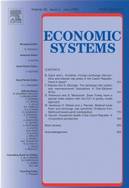
FDI, Human Capital and Income Convergence — Evidence for European Regions
in: Economic Systems, No. 2, 2016
Abstract
This study examines income convergence in regional GDP per capita for a sample of 269 regions within the European Union (EU) between 2003 and 2010. We use an endogenous broad capital model based on foreign direct investment (FDI) induced agglomeration economies and human capital. By applying a Markov chain approach to a new dataset that exploits micro-aggregated sub-national FDI statistics, the analysis provides insights into regional income growth dynamics within the EU. Our results indicate a weak process of overall income convergence across EU regions. This does not apply to the dynamics within Central and East European countries (CEECs), where we find indications of a poverty trap. In contrast to FDI, regional human capital seems to be associated with higher income levels. However, we identify a positive interaction of FDI and human capital in their relation with income growth dynamics.
Working Papers
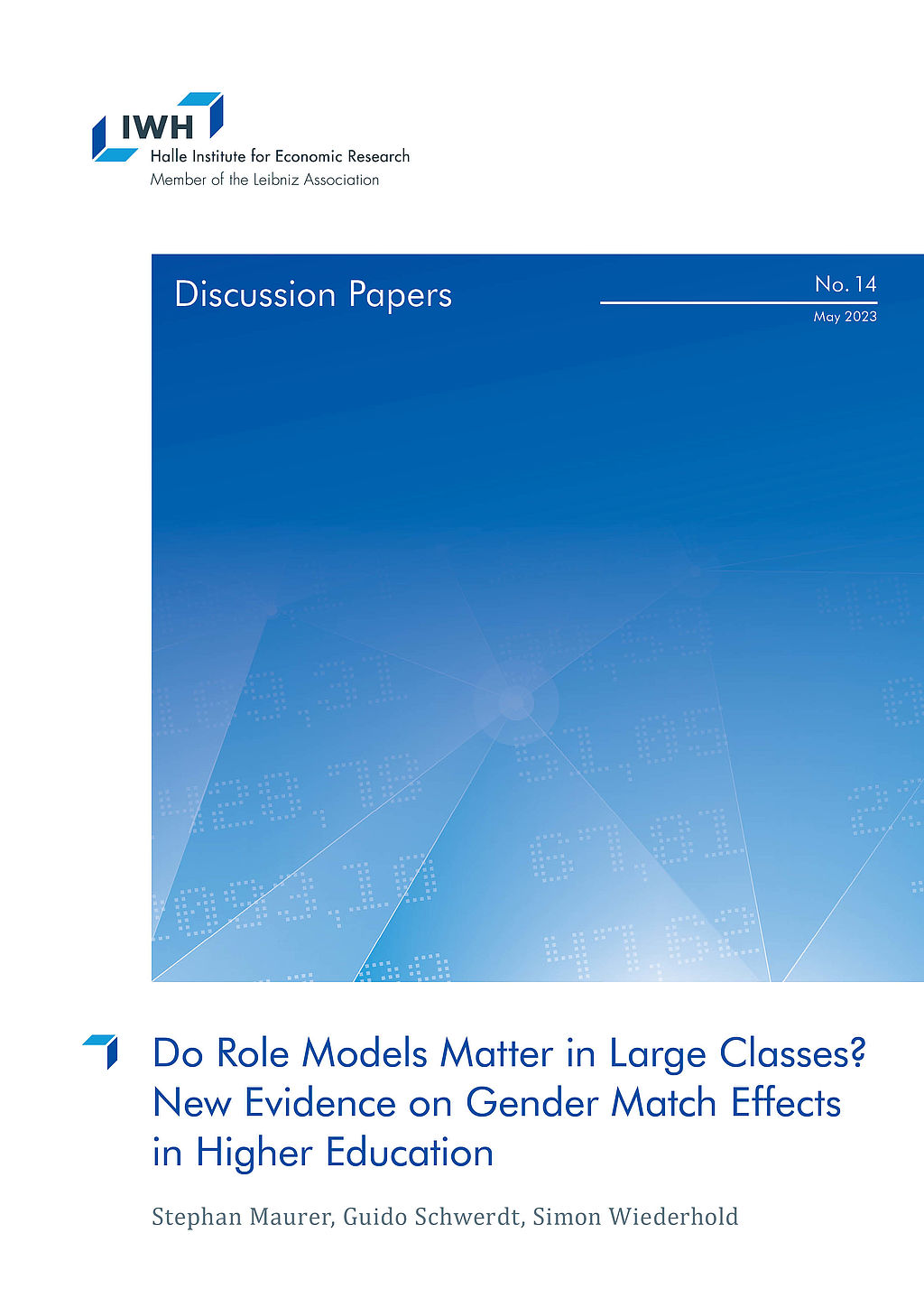
Do Role Models Matter in Large Classes? New Evidence on Gender Match Effects in Higher Education
in: IWH Discussion Papers, No. 14, 2023
Abstract
It is well established that female students perform better when taught by female professors. However, little is known about the mechanisms explaining these gender match effects. Using administrative records from a German public university, which cover all programs and courses between 2006 and 2018, we show that gender match effects are sizable in smaller classes, but are absent in larger classes. These results suggest that direct and frequent interactions between students and professors are crucial for gender match effects to emerge. In contrast, the mere fact that one’s professor is female is not sufficient to increase performance of female students.
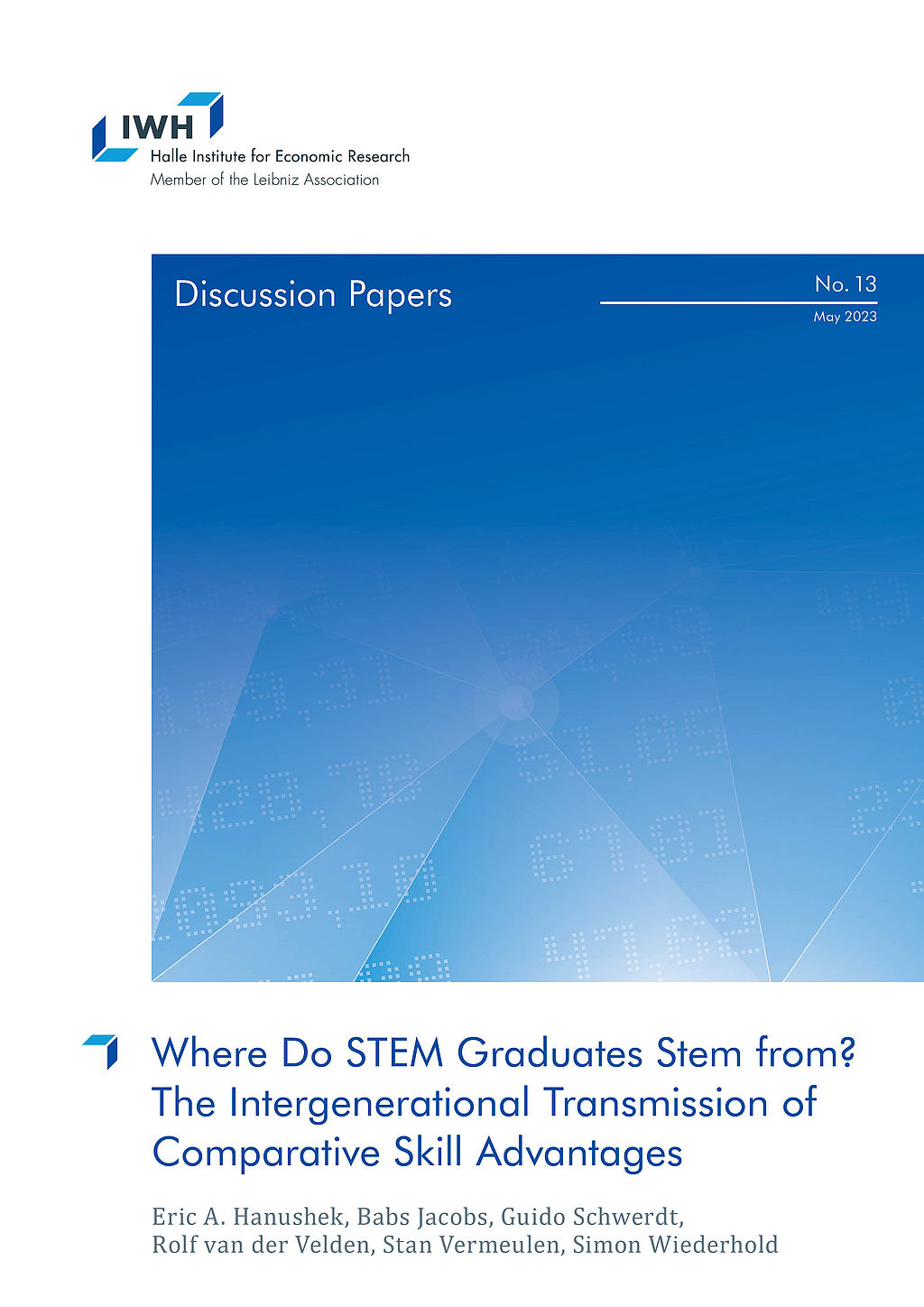
Where Do STEM Graduates Stem from? The Intergenerational Transmission of Comparative Skill Advantages
in: IWH Discussion Papers, No. 13, 2023
Abstract
The standard economic model of occupational choice following a basic Roy model emphasizes individual selection and comparative advantage, but the sources of comparative advantage are not well understood. We employ a unique combination of Dutch survey and registry data that links math and language skills across generations and permits analysis of the intergenerational transmission of comparative skill advantages. Exploiting within-family between-subject variation in skills, we show that comparative advantages in math of parents are significantly linked to those of their children. A causal interpretation follows from a novel IV estimation that isolates variation in parent skill advantages due to their teacher and classroom peer quality. Finally, we show the strong influence of family skill transmission on children’s choices of STEM fields.
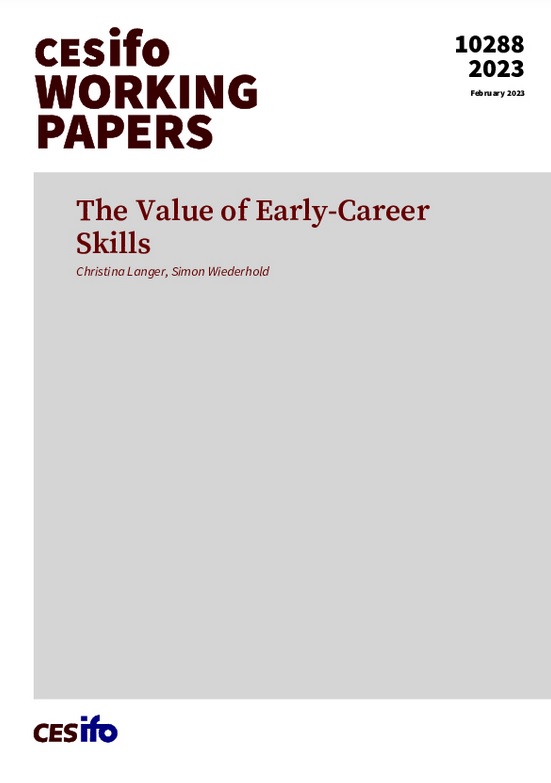
The Value of Early-Career Skills
in: CESifo Working Paper, No. 10288, 2023
Abstract
We develop novel measures of early-career skills that are more detailed, comprehensive, and labor-market-relevant than existing skill proxies. We exploit that skill requirements of apprenticeships in Germany are codified in state-approved, nationally standardized apprenticeship plans. These plans provide more than 13,000 different skills and the exact duration of learning each skill. Following workers over their careers in administrative data, we find that cognitive, social, and digital skills acquired during apprenticeship are highly – yet differently – rewarded. We also document rising returns to digital and social skills since the 1990s, with a more moderate increase in returns to cognitive skills.
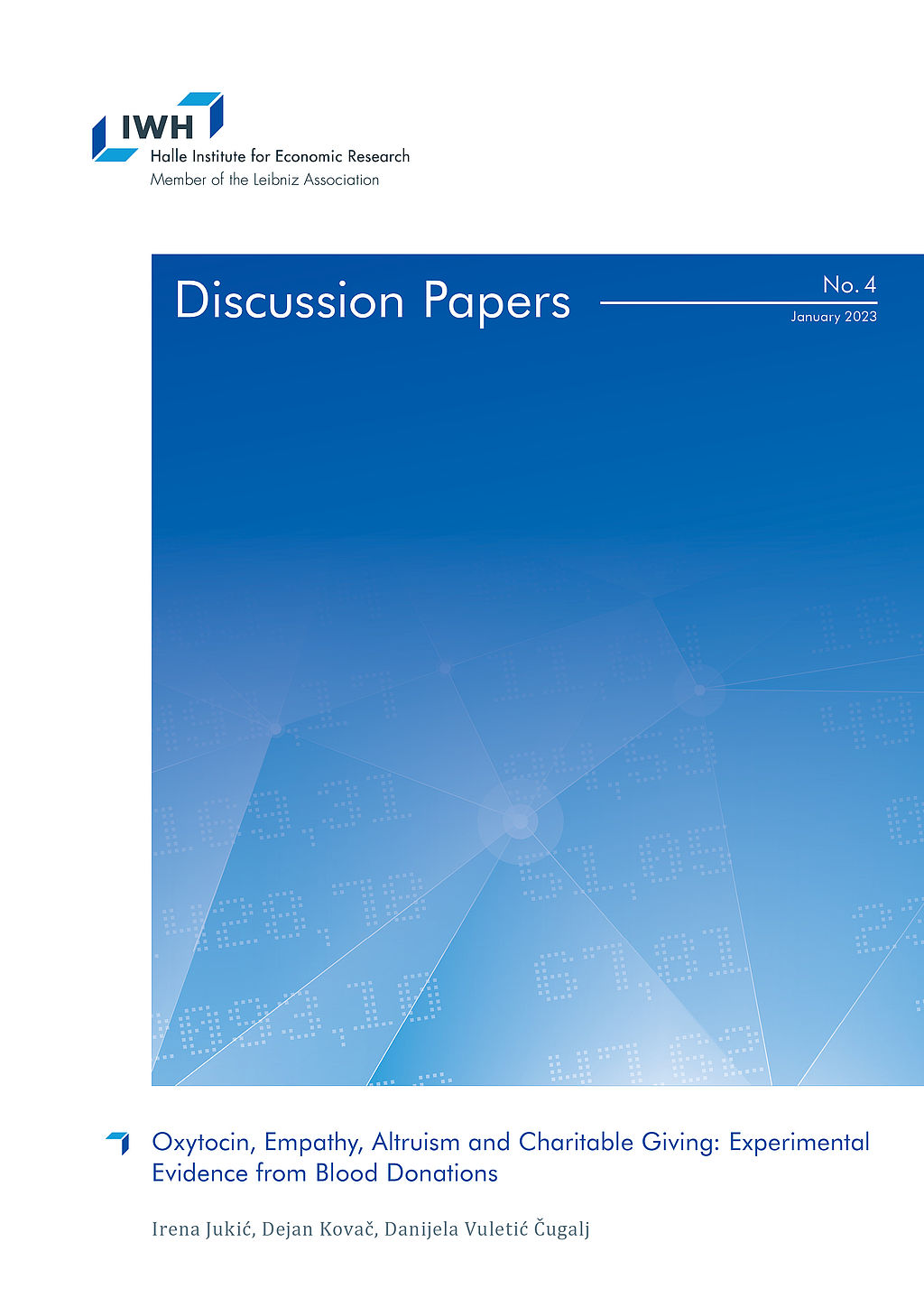
Oxytocin, Empathy, Altruism and Charitable Giving: Experimental Evidence from Blood Donations
in: IWH Discussion Papers, No. 4, 2023
Abstract
We conducted a field experiment in the natural setting of blood donations to test how oxytocin relates to empathy and altruism. We randomly assigned blood donors in the Croatian Institute for Transfusion Medicine to three groups with the aim to induce different levels of empathy by showing a neutral video to the donors from the control group and an emotional to the donors from the first and second treatment groups. In addition to watching the emotional video, donors from the second treatment group are given a gift which relates to the emotional story from the video. We find no effect of our treatment on induced levels of oxytocin. Null effects of our treatments could be explained by the above average baseline levels of oxytocin and inability of our treatments to provoke emotional stimuli in blood donors. Nonetheless, for our empathy measures we find the effect of gift exchange on empathic concerns, but not on perspective taking. After our experimental treatments, we followed the return of our blood donors for a whole year. We find that only variable which consistently predicts return for blood donation in stated period is the number of previous donations. From policy perspective it is an important finding. Especially for hospitals and other blood providers when faced with time and resource constraints.
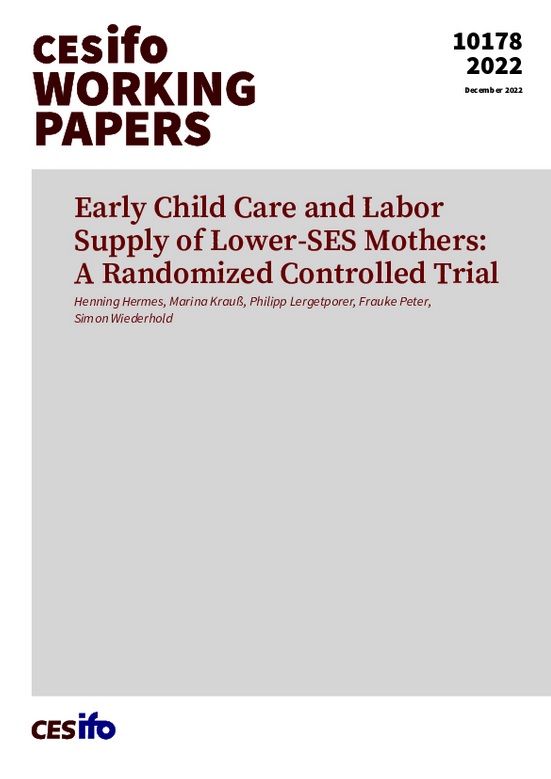
Early Child Care and Labor Supply of Lower-SES Mothers: A Randomized Controlled Trial
in: CESifo Working Paper, No. 10178, 2022
Abstract
We present experimental evidence that enabling access to universal early child care for families with lower socioeconomic status (SES) increases maternal labor supply. Our intervention provides families with customized help for child care applications, resulting in a large increase in enrollment among lower-SES families. The treatment increases lower-SES mothers' full-time employment rates by 9 percentage points (+160%), household income by 10%, and mothers' earnings by 22%. The effect on full-time employment is largely driven by increased care hours provided by child care centers and fathers. Overall, the treatment substantially improves intra-household gender equality in terms of child care duties and earnings.


















